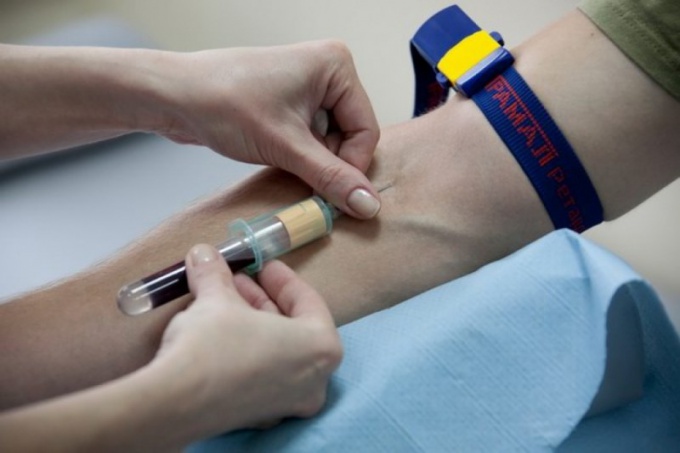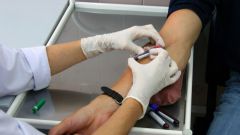You will need
- - direction for laboratory investigation.
Instruction
1
This hormone is very important for the normal development of early pregnancy – it stimulates the body hormones of prolactin and estrogen. This hormone is important for the proper development of the fetus, because it has a special effect.
2
Laboratory analysis of blood on hgch allows 6-10 days after conception to understand what had happened of an egg, if the test result was positive. It is the analysis of HCG is the basis of the popular pregnancy tests. In this case, the source material is urine which HCG is excreted from the body. However, this method is considerably inferior to blood in accuracy and performance.
3
In the future, when monitoring pregnant doctor repeatedly assigns laboratory tests the blood for HCG to have the ability to control the course of pregnancy: the increase or decrease of the level of HCG in the blood indicates a possible complications or incorrectly prescribed period of pregnancy, because there are strict rules for the presence in blood of this hormone each week of pregnancy.
4
A blood test for HCG need to take on an empty stomach, not earlier than 4-6 hours after the last meal. 1-2 days before the study should eliminate physical exertion, hormonal and other medicines – otherwise, it must promptly inform the doctor.
5
A lab technician extracts blood from the vein. For the greatest reliability and trending the level of HCG in the blood need to take a test repeatedly, at least 2 times with an interval of 2-3 days. To retake the blood preferably at the same time as the first time, also on an empty stomach, in the same laboratory – often indicators of HCG in the study in different labs differ from each other within the margin of error.
6
Sometimes it happens that the results of the analysis show the lack of it in the blood. It is possible too early in the study, or may indicate an ectopic pregnancy. Low level of HCG could indicate a delay in the development of the fetus, missed miscarriage, threatened spontaneous abortion or chronic placental insufficiency. Increased excess levels of HCG can be a sign of toxemia of pregnancy, multiple pregnancy, diabetes mellitus moms, some pathologies during pregnancy or incorrectly prescribed period.
7
If human chorionic gonadotropin detected in nonpregnant women or men, this may indicate tumors of the gastrointestinal tract, testes (in males) and other internal organs, about the likelihood of hydatidiform mole and other serious diseases.
Useful advice
Woman preparing to become a mother, needs to take responsibility for your own health and to fulfill all medical appointments – this will help to avoid serious complications.






